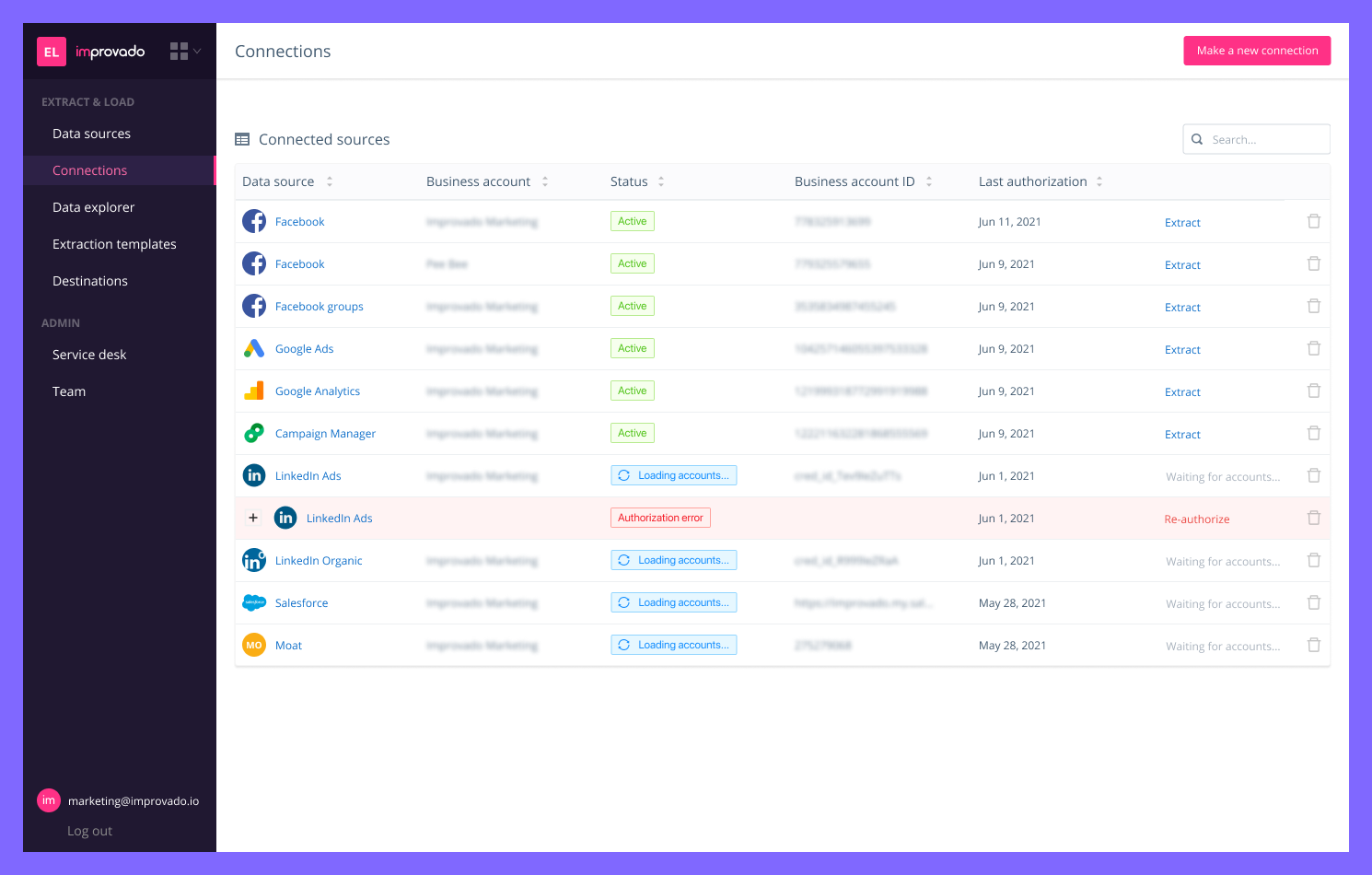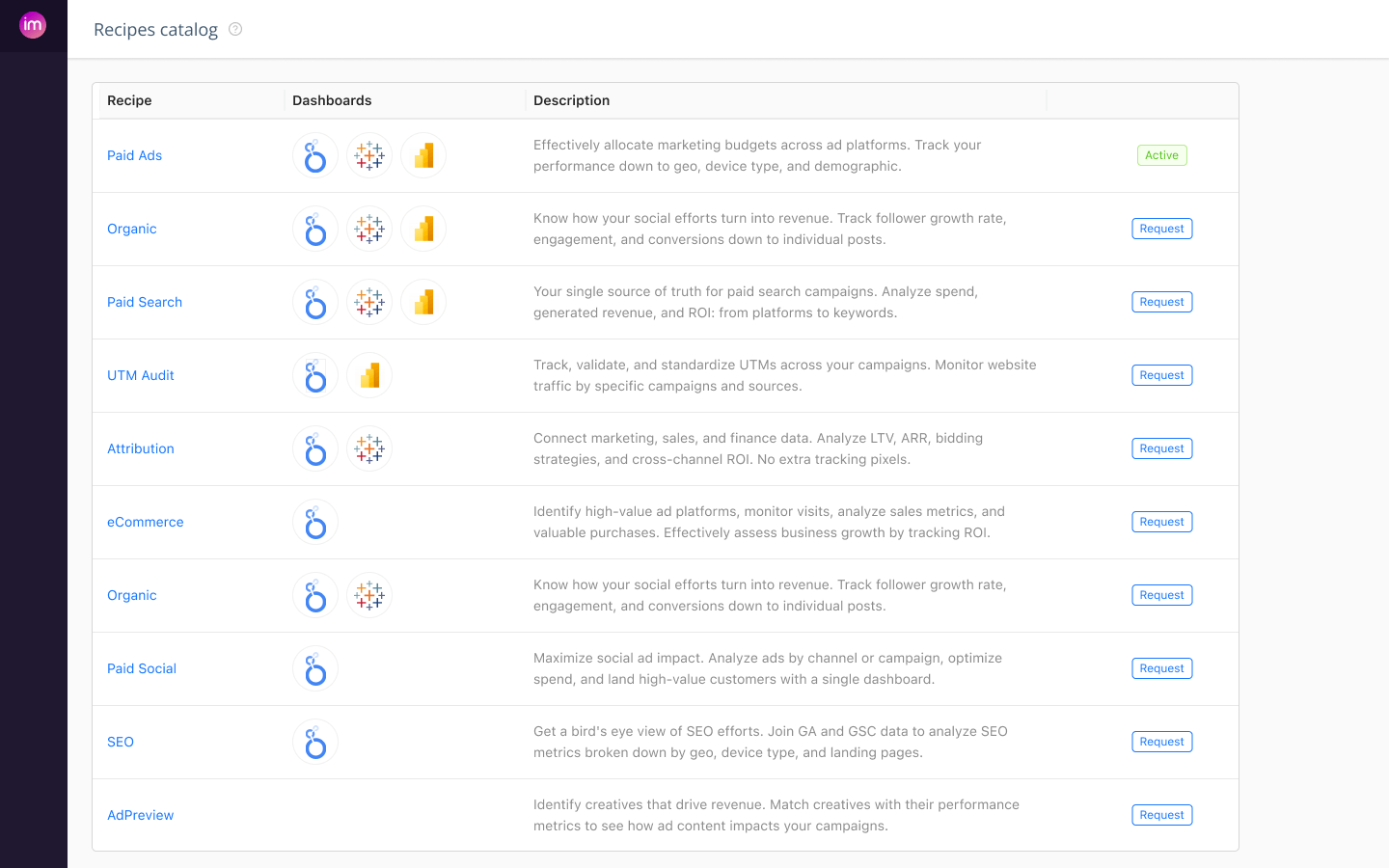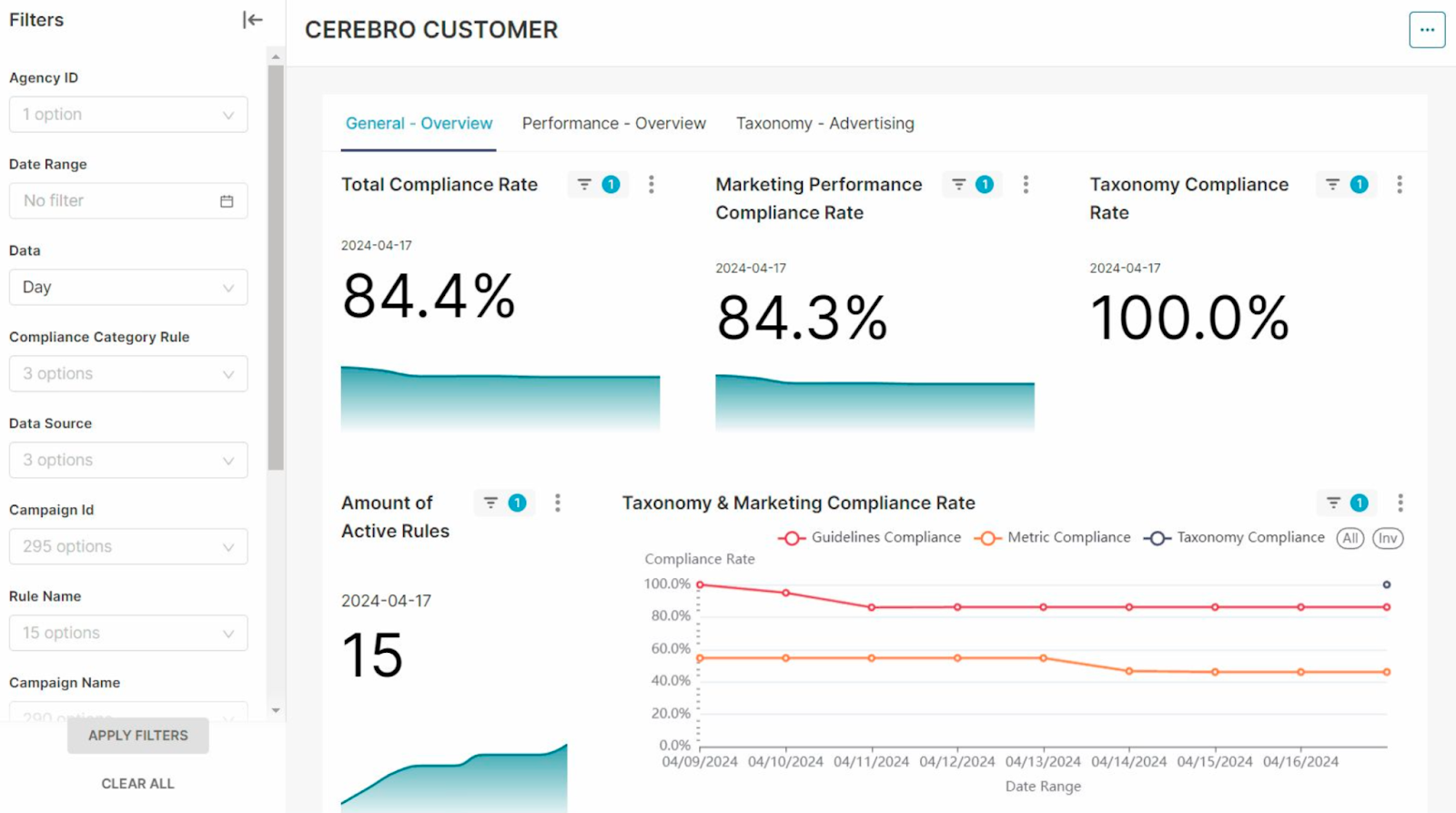The marketing information management (MIM) approach helps marketing departments handle the increasing complexity and volume of marketing data. It provides a structured framework for collecting, organizing, and analyzing information from diverse sources. This structured data management is crucial for making informed decisions, optimizing marketing strategies, and ensuring accurate and actionable insights.
This article outlines the main aspects of MIM, its benefits, challenges, and actionable insights to optimize marketing information management practices.
What Is Marketing Information Management?
Benefits of Marketing Information Management
Before diving into what marketing information management involves and what challenges you might encounter along the way, let’s outline some of the benefits of adopting a structured approach to data management.
- Enhanced decision-making: A structured approach to marketing information management fosters the team's confidence in the data and encourages them to rely on data in their decision-making more often. Leveraging data-driven insights significantly enhances strategic planning and execution, allowing marketers to respond more effectively to market dynamics.
- Improved campaign effectiveness: This is a direct consequence of the first benefit. By leveraging MIM, companies have a better ability to segment audiences and personalize marketing efforts, leading to higher engagement rates and improved campaign performance.
- Increased efficiency: MIM streamlines the process of data collection, storage, and analysis, reducing the time and effort required to manage marketing data. The automation can save marketing teams from 80 to 100 hours each week. Automated processes and integrated systems enhance operational efficiency, allowing marketing teams to focus on strategy and execution rather than data management tasks.
- Cost savings: Efficient data management reduces the costs associated with data errors, redundancies, and inefficiencies. MIM helps in optimizing marketing spend by ensuring that resources are allocated based on accurate data and insights, ultimately leading to better ROI.
Now that you know why marketing information management is important, let's dive into what information falls under the MIM framework and how to establish MIM in your organization.
What Is Included in Marketing Information?
While the answer to the question of what marketing information is might seem obvious, let's still look at what is included in it.
Internal Data
Internal data refers to information generated within the organization. This includes sales records, digital marketing metrics, customer data, customer feedback, product performance metrics, and financial reports. Internal data provides insights into historical performance, customer behavior, and operational efficiency, essential for strategic decision-making.
Competitive Intelligence
Competitive intelligence involves gathering and analyzing data about competitors. This includes details on competitors' products, marketing strategies, pricing, and market positioning. By understanding competitive dynamics, organizations can identify opportunities and threats, enabling them to adjust their strategies accordingly.
Market Research Data
Market research data encompasses information obtained from surveys, focus groups, industry reports, and market analysis. It provides a comprehensive understanding of market trends, consumer preferences, and industry benchmarks, helping businesses to align their strategies with market demands.
External Data
External data is an additional source of information for marketing departments that not every team relies on, but it can still fall under the MIM framework.
External data includes publicly available information such as industry reports, economic data, and news articles. It helps in understanding the broader market environment and identifying external factors that can impact the business.
Key Components of Marketing Information Management
Marketing information management encompasses a wide range of activities designed to manage the flow of information from various sources to facilitate decision-making within a marketing context.
This process includes the following steps.
1. Data Collection
The first step to managing marketing information is gathering the data from internal and external sources. While it can be done manually, manual data collection is highly time-consuming and prone to error.
The key instrument to automated data extraction, and automated data processing as a whole, is Extract, Transform, and Load or ETL. It's a three-step process that streamlines data integration from various sources into a single, coherent dataset.
The first step, Extract, is responsible for automating data gathering from multiple sources, including internal systems, CRMs, ad platforms, and other marketing data sources.

For instance, Improvado is a marketing-specific analytics and data management platform. It seamlessly gathers data from over 500 marketing and sales platforms, pulls data from spreadsheets and custom sources. Improvado further facilitates data integration by offering data extraction templates, up to 5 years of historical data load, and hourly data sync.
2. Data Storage
Data storage is the second critical step in marketing information management as it ensures that all collected data is securely and systematically organized for easy access and analysis.
Effective data storage involves several key aspects:
- Centralized data repositories: Data warehouses or data lakes are essential for storing vast amounts of marketing data. These systems consolidate data from various sources into a single location, making it easier to manage and retrieve information.
- Data organization and structuring: This involves categorizing data based on relevant attributes, such as customer demographics, transaction details, or campaign performance metrics. Structured data storage facilitates faster querying and analysis.
- Scalability: It ensures that the storage infrastructure can handle increasing data loads without compromising performance.
- Backup and recovery: Regular data backups are essential to prevent data loss due to hardware failures, cyber-attacks, or other unforeseen events. A well-planned backup and recovery strategy ensures that data can be restored quickly, minimizing downtime and operational disruption.
3. Data Analysis
This step is crucial as it transforms raw data into actionable insights. Utilizing automated tools to run this analysis enhances efficiency, accuracy, and scalability. Automated tools can quickly process large datasets, identify patterns, and generate insights without the manual effort required in traditional analysis methods.

Improvado simplifies access to accurate and timely insights. The platform streamlines data preparation by providing powerful data transformation capabilities and pre-build data models and dashboards tailored for specific marketing scenarios, such as analyzing ad spend or attributing sales revenue. This ensures a smoother transition to data analysis, enabling businesses to focus on deriving actionable insights.
4. Data Distribution
Data distribution involves disseminating processed and analyzed data to relevant stakeholders within an organization, for instance, generating and sharing reports, dashboards, and data summaries tailored to the needs of different departments. Proper data distribution helps maintain alignment across the organization, ensuring everyone works with the same up-to-date information, which enhances collaboration and strategy execution.
Pro tip: Utilize advanced analytics tools and platforms that offer AI-driven insights and automated reporting to further democratize access to data.

Improvado AI Agent is a conversation analytics and self-service BI platform that enables seamless data exploration, analysis, and visualization through commands in plain English. This quick and easy access to insights encourages marketing teams and other business users to rely on data in their decision-making more often.
5. Data Maintenance
Data maintenance is a crucial component of marketing information management that ensures the ongoing accuracy and relevance of data. This involves regularly updating, cleaning, and validating data to eliminate errors, duplicates, and outdated information. Proper data maintenance enhances the reliability of the data, ensuring that marketing decisions are based on accurate and current information.

Streamline the process by integrating automated data quality management software solutions like Marketing Data Governance. Marketing Data Governance is an AI-powered campaign management and data governance platform that automatically validates the consistency of your data and alerts you of any anomalies and data discrepancies.
Leverage Improvado for Marketing Information Management
Improvado enhances marketing information management by providing an integrated platform that automates and simplifies data processes, from data collection and validation to data analysis and insights discovery.
The platform ensures that data from various channels is consistent and ready for analysis. This is crucial for organizations that depend on accurate and uniform data to inform their marketing strategies.
Marketing Data Governance by Improvado enhances these capabilities by focusing on campaign data management and data governance. Marketing Data Governance automates compliance and operational checks for marketing data against established standards, ensuring that everything from naming conventions to targeting parameters is consistent across all assets.
.png)



.png)
